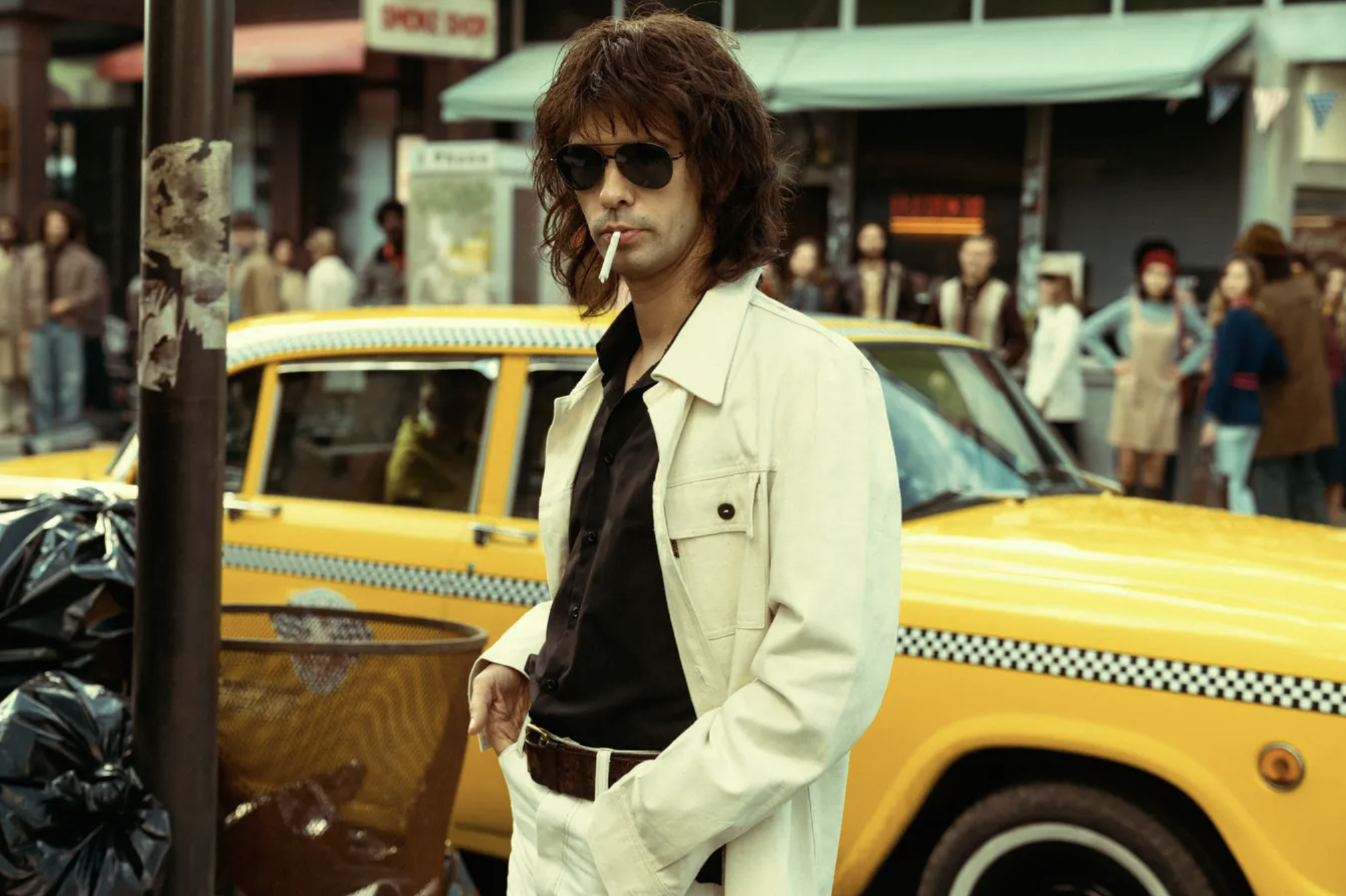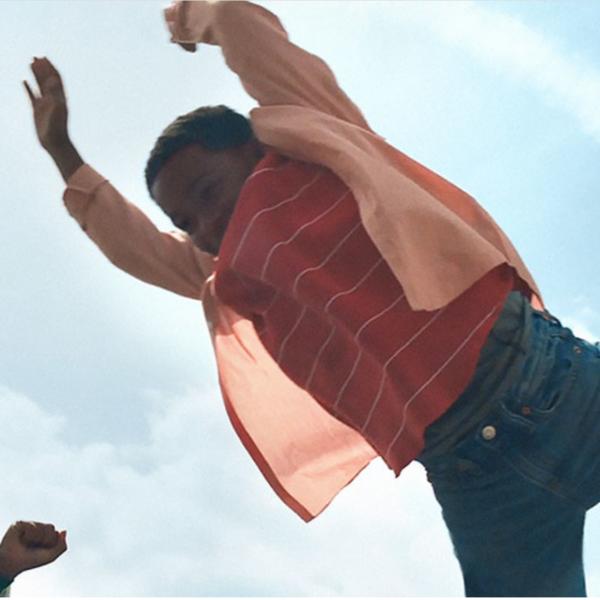
Sex is politics and politics is sex in Kirill Serebrennikov’s recklessly beautiful, wildly entertaining English-language debut “Limonov: The Ballad.” This punk rock epic moves at the pace of a train coming off its tracks across Moscow, New York, Paris, and back to Russia again, starring Ben Whishaw in a career-crowning lead performance as the self-styled alternative poet and political dissident Eduard Limonov (who died in 2020). Based on French writer and journalist Emmanuel Carrère’s biographical novel, “Limonov” spans the 1960s to near present-day Siberia to tell with orgiastic excess the life story of the eventual founder of the National Bolshevik Party, which married a far-left youth movement to far-right fascist ideology. But while Limonov’s politics are inextricable from the libertine hedonist he was, Serebrennikov’s film is more a purely pleasurable romantic odyssey than political deep dive, radiating a countercultural energy that smacks of freewheeling ‘70s cinema more than a film of its current time.
We first meet Limonov, born Eduard Savenko before he remaking himself under his chosen nom de plume, while on a book tour in early 1990s Moscow. Whishaw, reedy in horn-rimmed glasses and jet black hair and just a touch of aged makeup, cuts a countercultural figure more like a punk rocker than a literary intellectual. And as the movie leaps backward in time, we see how very much the former Limonov is: a dissolute pleasure seeker addicted to romance and madness. Serebrennikov works with the Russian group Shortparis to reimagine popular songs from Lou Reed, the Velvet Underground, and Tom Waits, thrumming on the soundtrack in a fast-paced hyperballad of a movie that almost never stops to exhale.
Back in 1960s Moscow, given the choice to be exiled to New York or become an informant to the KGB secret police, Limonov heads West. In Paris, he meets the inevitable great love of his life, the model Elena (Viktoria Miroshnichenko), at a boozy, smoke-filled party. He makes her a custom pair of jeans — apparently, Limonov is a tailor as well as an aspiring writer — and they engage in some vigorous fucking. (“Limonov” is uninhibited in its explicit sexuality, never defining Limonov’s own preferences beyond wanting to fuck whoever’s in front of him.) But when Limonov, pounding on her door the next day, learns she already has a live-in boyfriend, rather than hang it up, he slashes his wrists with broken glasses, smears blood all over the threshold, and declares his love.
With Serebrennikov and Ben Hopkins, Paweł Pawlikowski shares a screenwriting credit as well. The Polish director of “Ida” and “Cold War” was originally attached to direct an adaptation of the revolutionary militant’s life saga before abandoning the project. The script, spoken entirely in English and giving “Limonov” an international flavor appropriate for a movie primarily set in the U.S. but produced by Italians and directed by a Russian, doesn’t really make much space for the film’s female characters, including Elena. She follows Limonov to New York City in 1975, where they haunt dark bars and porno houses and make love of all kinds in a dank hostel where the bedsheets practically ooze the smell of sex off the screen. That’s how tactically Serebrennikov renders midtown Manhattan in the 1970s, the streets abuzz with the air of cultural change, sewer steam, and people off their heads on drugs. (The production, which took close to five years and was interrupted by the Russian invasion of Ukraine, recreated the streets of New York on a Moscow soundstage.)
The underdevelopment of the female characters — beyond Elena eventually getting bored and running off with someone else, leaving Limonov in utter, down-on-his-knees despair — may serve a purpose. “Limonov” unfolds entirely from the writer’s perspective, a product of his times and as sordid and sexist as any Charles Bukowski type. There’s even a dash of Travis Bickle to Limonov’s vibes, and at one point in a meeting with a potential publisher as he tries to get his first book off the ground, Limonov in a green military jacket is asked if he’s ever seen “Taxi Driver.”
But back to Limonov’s post-breakup ruinous state, which leads him to have sex in a drainpipe with a Black street dweller (Alexander Prince Osei) in another of the film’s wildly unfettered love scenes. Whishaw is fearless and stripped-down in more ways than just this, though, as the actor, as we saw from “Passages,” has never shied from thrusting onscreen. Whishaw free falls into the Limonov persona, fully immersing himself in the writer’s beautiful (but unread-by-the-world) poetry and prose. You don’t see the actor disappear so much as the vivid presence of Whishaw shining through his interpretation of the character — and the actor’s smallness is an appropriate contrast for someone of Limonov’s self-grandiosity.
Limonov’s brush with the American Dream leads to a string of failures, and to him eventually taking a job as a live-in butler for a millionaire on the Upper East Side. It’s there that Limonov formed the writings that became his 1987 autobiographical novel, “His Butler’s Story.” All he wants to do is fuck or destroy everything, but the episode forces him to become more loyal to civilization. The film’s boundless energy is propelled by cinematographer Roman Vasyanov who blends an 8mm archival style with 35mm wide shots, and Yuriy Karikh’s breathless editing that keeps the story hurtling. “Limonov” suffers from some pacing issues toward the finale, which finds Limonov in a Siberian prison before going back to Moscow to make his final political cri de coeur, made more apparent because the movie has so far been so vivacious and dynamic.
But politics interest Serebrennikov less than style and the pure pleasure of cinema. A bravura long-take sequence follows Whishaw literally walking through different slices of time in the 1980s, each era literalized in the form of another room he’s busting through, and all the way through the collapse of the Berlin Wall and the downfall of the Iron Curtain. This isn’t your stodgy historical epic. There are many such ecstatic moments throughout “Limonov,” which is even likely to burst into song for the hell of it (as when patrons in a laundromat start snapping their fingers and singing as a naked man outside takes to the streets and starts screaming). The film’s excess of energy almost never burns out, pummeling you with the bacchanal brewing inside its lead.
Which takes us back to Whishaw, giving what will be remembered as one of his very best performances. He’s never before been quite so soul- or body-baring, and even bittersweetly reflective, as when Limonov, in his early 40s, returns to his hometown decades after abandoning his parents, who are still there waiting for him to start a family. Whishaw and Serebrennikov, the director of films like “Petrov’s Flu” and “Tchaikovsky’s Wife” that have long melded fantasy with reality and dreams with waking, are ever on the same wavelength and seem to have perfectly understood the material. Even when “Limonov” stumbles, it never stops moving as restlessly as its real-life protagonist did.
Grade: B+
“Limonov: The Ballad” premiered at the 2024 Cannes Film Festival. It is currently seeking U.S. distribution.





